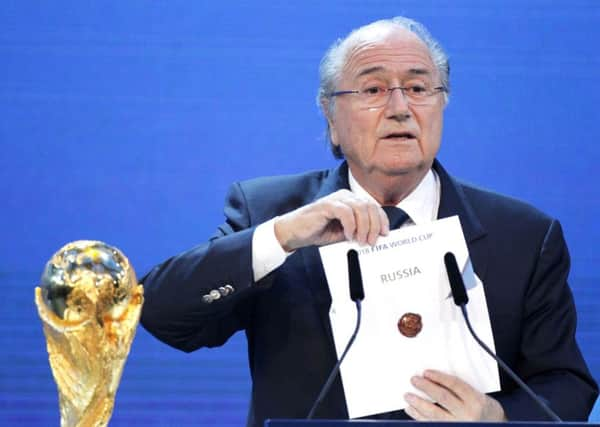Martin Flanagan: Fifa must run like proper business


That’s because all the outward signs of chronic dysfunctionality were so brazenly there. Not least was that the governing body of world football had in Sepp Blatter a “chief executive” who was in power far too long – 17 years – for comfort. He had turned Fifa into a personal fiefdom.
Both such things set alarm bells ringing in the real business world and the stock market (the latter another level of external scrutiny apart from the media that surely would have stopped the wayward organisation in its tracks).
Advertisement
Hide AdAdvertisement
Hide AdStrong independent non-executive business directors, and many chief executives themselves, tend to feel new blood is needed at the top after about a decade in charge, tops. Otherwise, complacency can set in. Equally, a robust PLC board would not have indulged in the groupthink that seems to have gripped all Blatter’s closest lieutenants at Fifa. Periodic opposition was swatted aside.
If people in the corporate world make bizarre, meandering public speeches they tend not to last too long (ask Gerald Ratner). Blatter, 79, seemed to make a habit of it and then get clapped enthusiastically by septuagenarian and Fifa delegates for his pains. Witness the embarrassing spectacle when he was re-elected for a fifth four-year term even as the US legal dragnet was tightening.
Another key difference between Fifa and a straightforward business is that the latter has to go out and earn its corn. Strategic vision has to be backed by strong work on the ground to boost revenues and take the organisation forward. But football’s governing body hadn’t, and didn’t need, this discipline. The riches of Croesus came to it because global football is a financial honeypot, beloved of television and marketing companies, and a fantastic opportunity for governments to create popularity at home through staging the four-yearly World Cup.
If that meant bribes in envelopes and staying in £1,000-a-night hotels for Fifa’s bigwigs as countries’ political, royal and celebrity representatives prostrated themselves to try and get the prestigious staging of “the beautiful game”, so be it.
Incidentally, what corporate boss would be able with a straight face to commission a report by his organisation’s head of ethical compliance, and then water it down for public consumption, leading to the resignation in high dudgeon of the person involved, as Blatter’s Fifa did?
Whoever does succeed the previously Teflon-coated Fifa boss, against a backcloth of numerous high-level arrests in the organisation by the US attorney-general and the FBI, the organisation could look to the real business world for hints of how to conduct itself better in future.
For one, bring in some completely independent and respected names to forensically examine the organisation from top to bottom. That way solid, verifiable solutions – and the transparency of their enactment, enforcement and monitoring – might help rebuild the vast credibility that has been lost in the trough of financial self-interest and unchecked hubris. «